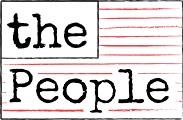
New Hampshire Together
Policy Agenda
2024/2025
The health of New Hampshire’s democracy reflects the people’s confidence in the system itself. A healthy system reflects the will of the people and does not let political differences impact the ability to deliver results. New Hampshire has a longstanding tradition of strong voter engagement, but in recent history some of the trust in elections and effective representation has decreased as political polarization has increased. To ensure our democracy persists, it is necessary that we, as the people, fix what is broken in our political system.
In June of 2024, a representative group of delegates from every region of New Hampshire came together for three days, navigating through our differences in the name of reducing electoral polarization, increasing political accountability, and increasing trust in elections. With hopes of finding understanding across a range of perspectives, and building an actionable plan going forward, we, the dedicated voters of this great Granite State, propose the following:
I: Increase public understanding of current NH election laws, policies, processes, and results, we propose the following policy solution:
Essential Elements of the Policy Solution:
Non-partisan working group of citizens work closely with the Voter Information Coordinator in the SOS to improve voter information in the following ways:
Polling place posters that make clear how we avoid fraud in NH (“what’s happening behind the scenes” - full transparency)
Help town websites become more uniform/better across the state (build on existing best practices; SOS has $15M funding through Help America Vote Act to help towns with this
Promote awareness of all the resources/links for voters to access information
Publish election process statistics in an easy to find place (may require legislative mandate)
E.g, Number of random audits/where, what % differences in machine v. hand counts, number of affidavits, number of new registrants, and voter list audit
Physical copies of educational material at various locations such as libraries, senior centers, and clerk offices
Find trusted channels for key segments to help get out the info/links
E.g, Have the Secretary of State do interviews with WMUR explaining how the election process works in NH, mythbusting, and promoting information resources
II: Single Ballot Primary
Essential Elements of the Policy Solution:
All properly registered candidates are listed on a single ballot.
Candidates have the option, but not the requirement, to include the party of preference next to their name on the ballot.
Develop a formula that will determine the appropriate, representative number of candidates that advance to the general election.
Education on use of the new single ballot primary.
Require a reasonable threshold of signatures for all candidates to be eligible to be on the ballot.
Eliminate the need of the voter to declare a party to participate in the primary.
III: Pre-K-12+ Civics Education
Essential Elements of the Policy Solution:
Ask for the creation of a Civics Education Advisory Board, under the Secretary of State’s Civics and Education Voting Coordinator.
The Civics Education Advisory Board should be tasked to use SB 216 and RSA 189:11 to support and/or develop a model curriculum framework for Civics Education, that could be adopted locally, which includes:
Revisit and strengthen Civics and Government competencies in addition to the NH DOE’s State Constitution curriculum, including relevant skills on registering, voting, lobbying, and representing.
Teach a balance of rights and responsibilities through an interdisciplinary Pre-K-12+ curriculum.
Similar standardized measure of proficiency to ELA, Math, Science for the Social Studies.
IV: Fix redistricting to address challenges with clear policy directives
Essential Elements of the Policy Solution:
Create an independent redistricting commission with citizen participation, based on previous efforts (HB706 - 2019 / HB1665 - 2020 which passed) that includes:
Ensure it’s transparent
Keep communities together
If a community (town or city) qualifies for its own district (more than 3,444) we should be pushing for that (giving communities large enough their own representation - 62 towns qualify to have their own rep and don’t!)
As close to a “square” and “straight line” as much as possible:
“Districts shall be drawn in compact shapes and shall avoid jagged edges and extensions”






